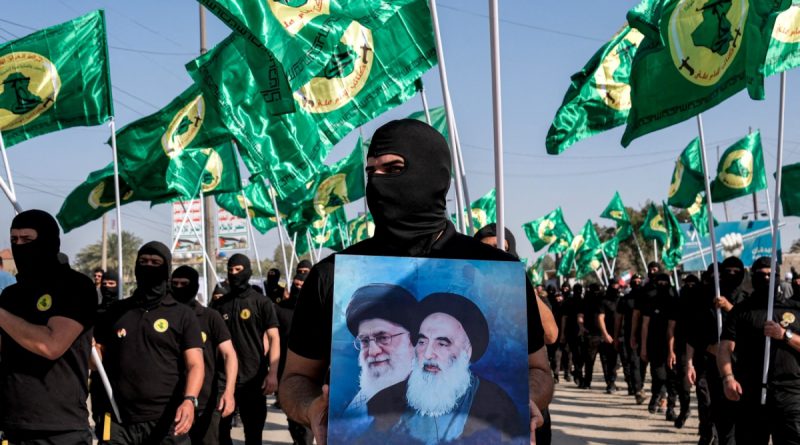Iran’s Bite Weakens: How Iraq Just Chewed Up Tehran’s PMF Ambitions
The PMF bill’s withdrawal reflects the interplay between military realities, domestic politics, and international pressure.
The recent withdrawal of Iraq’s draft law to restructure the Popular Mobilization Forces (PMF) has illuminated a striking reality: Iran, once a formidable force in shaping Iraqi politics and regional militias, is showing signs of vulnerability. Intended to mirror the Iranian Revolutionary Guard Corps (IRGC) in power, autonomy, and influence, the bill sought to cement Tehran’s dominance in Iraq through its Shiite allies. Yet internal Iraqi divisions, Sunni and Kurdish resistance, and external pressures from the United States revealed the limits of Iran’s reach.
The episode follows closely on the heels of the 12-day war with Israel, which exposed strategic weaknesses in Tehran’s regional posture, making the PMF bill politically untenable.
A Proxy Plan Stalled: The PMF Bill’s Ambitions
The PMF draft law was designed to be transformative. Its provisions granted the organization sweeping powers: the ability to arm itself, train personnel independently, expand its logistical and construction enterprises, and establish its leadership with ministerial authority over military and administrative affairs. Essentially, it envisioned an Iraqi IRGC—an institution capable of shaping state security while consolidating Shiite political dominance.
The legislation included the creation of a PMF Academy, issuing degrees in military sciences, and a General Engineering and Contracting Company to manage infrastructure projects—replicating Iran’s Khatam al-Anbiya model. Senior commanders would enjoy ministerial rank, effectively superseding the Defense Minister in overseeing PMF operations. Provisions allowed senior fighters past normal retirement age to remain in command, while the term “mujahid” underscored an ideological, Tehran-aligned identity. This institutionalization would have given Iran a durable foothold in Iraq’s military and political systems, potentially reshaping regional dynamics in its favor.
Yet the bill faced insurmountable hurdles. Sunni and Kurdish blocs united in absolute opposition, seeing the legislation as a direct threat to national balance and sovereignty. Internal Shiite divisions further complicated matters: hardliners pushed aggressively for passage, moderates opposed it, and others took a cautious, wait-and-see approach, reflecting the uncertainty following the recent conflict with Israel. The 12-day war had exposed vulnerabilities in Iran’s military posture, casting doubt on Tehran’s ability to project power and coordinate its proxies effectively.
External pressures compounded these challenges. The United States vocally opposed the legislation, warning that it would strengthen Iran’s influence and undermine Iraq’s sovereignty. Congressional initiatives such as the “Iraq Liberation Act” threatened sanctions and curbs on trade and investment if the law passed. U.S. leverage, combined with Iran’s perceived military weakening after the Israeli confrontation, tipped the scales in favor of withdrawal. The episode demonstrates that even Tehran’s carefully orchestrated proxy strategies can be constrained by a combination of local resistance and external intervention.
Tehran on the Back Foot: Lessons from a Toothless Moment
The PMF bill’s withdrawal is a telling reflection of Iran’s declining influence in the region. The recent 12-day war with Israel highlighted both operational and strategic shortcomings, eroding confidence in Tehran’s ability to impose its agenda. Its proxies, previously thought reliable and dominant, proved vulnerable, and their political instruments—like the PMF draft—could no longer advance unchecked.
This moment underscores a broader regional recalibration. Iraq’s institutions, in resisting the PMF bill, have asserted national sovereignty and signaled that external attempts to institutionalize proxy dominance will face both internal and international pushback. Tehran’s silence during the withdrawal, despite having shaped the draft law, signals a tactical retreat rather than a strategic victory. The lesson is clear: Iran’s influence, while still significant, is increasingly subject to the realities of political contestation, military setbacks, and global scrutiny.
For Iraq, the episode offers both a caution and an opportunity. It demonstrates that coalition politics can check foreign-aligned ambitions, and it hints at the potential for a more balanced national security apparatus. For Tehran, it is a rare reminder that its regional maneuvers are not omnipotent: the 12-day war with Israel and the failure of the PMF bill illustrate the limitations of coercive influence, highlighting vulnerabilities in both perception and capability.
In sum, the PMF bill’s withdrawal reflects the interplay between military realities, domestic politics, and international pressure. It represents a moment in which Iran’s ambitions collided with structural constraints, exposing the diminishing returns of its assertive regional posture. The episode is less a permanent defeat than a stark reminder that Tehran’s influence is not immutable, and that under current circumstances, its power has limits—making it a rare instance of regional recalibration that reinforces Iraqi agency and highlights the strategic leverage of both domestic actors and international stakeholders.



